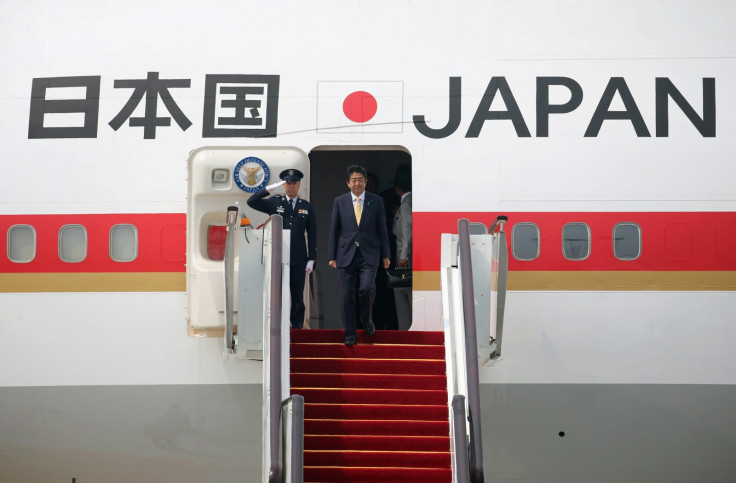Japan's government warns the nation's corporations could quit the UK after Brexit
Japan's government's says the UK's exit from the EU will 'a major disturbance to the world economy'.
As the G20 summit gets underway, the Japanese government has warned of its corporations may leave the UK, if the country loses access to the European free market after Brexit.
A 15-page report published by the Japanese Ministry of Foreign Affairs sets out the possible consequences to trade between UK and Japan after Brexit, if requests from Japanese firms are not met.
The document contains specific note telling the UK to maintain an immigration system that ensures the "acceptance of highly skilled professionals in the banking and other sectors".
The report also highlights that about 50% of Japanese investment in the EU comes to the UK, which includes money from companies such as Nissan, Honda and Mitsubishi.
"Japanese businesses with their European headquarters in the UK may decide to transfer their head-office function to Continental Europe if EU laws cease to be applicable in the UK after its withdrawal," the report says.

The list of requests made by the report takes in automobile manufacturers and banks, raising fears that car parts would be taxed twice if imported from the EU and then assembled in Britain and the fallout to financial institutions if the UK loses access to the bank passporting system.
What is 'passporting'?
Passporting allows banks with offices in the UK states to open satellite offices in other EU countries, without getting special permission from the local governments. It simplifies trade and the transfer of staff around the continent.
Whether the UK financial service sector retains this right is one of the matters that must be negotiated once Article 50 is invoked and the UK begins the process of extracting itself from the EU.
"If Japanese financial institutions are unable to maintain the single passport obtained in the UK, they would face difficulties in their business operations in the EU and might have to acquire corporate status within the EU anew and obtain the passport again, or to relocate their operations from the UK to existing establishments in the EU," said the report.
UK-based investment banks have already noted similar concerns around passporting, but the Japanese report is the strongest official statement yet from a foreign government on the issue.
The Japanese pharmaceutical industry is also worried by Brexit, according to the report. The EU's European Medicines Agency is located in London and is key to the UK's appeal as a location for drug research.
"Many Japanese pharmaceutical companies are operating in London, due to the EMA's location in London. If the EMA were to transfer to another EU member state, the appeal of London as an environment for the development of pharmaceuticals would be lost, which could possibly lead to a shift in the flow of R&D funds and personnel to Continental Europe.
"This could force Japanese companies to reconsider their business activities," says the report.
"The government of Japan trusts that the UK and the EU, by heeding these requests to the fullest extent and responding to them in a cooperative manner, will maintain the current business environment or alleviate the impacts of any radical changes, so as to remain an attractive destination for doing business," the report says.
"Japan is willing to cooperate so that the process of negotiations for the UK's withdrawal would move forward smoothly without causing major disturbance to the world economy."
The report came after President Barack Obama warned Prime Minister Theresa May that the US will not prioritise making a UK trade deal when the UK leaves the European Union, in favour of finalising the TIPP and TPP trade deals with the EU and Asia-Pacific nations.
© Copyright IBTimes 2025. All rights reserved.




















